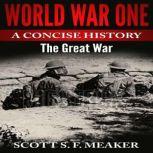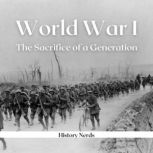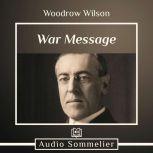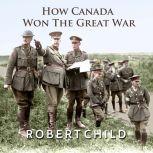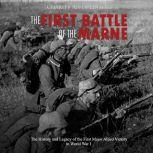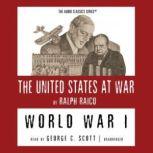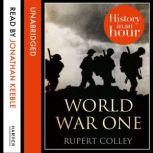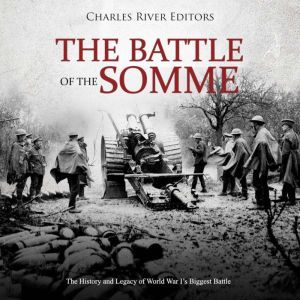
Details
Battle of the Somme, The: The History and Legacy of World War Iís Biggest Battle
Author: Charles River Editors
Narrator: Jim Johnston
Unabridged: 2 hr 14 min
Format: Digital Audiobook
Publisher: Findaway Voices
Published: 04/11/2019
Synopsis
"Somme. The whole history of the world cannot contain a more ghastly word." - Friedrich Steinbrecher, a German officer.
World War I, also known in its time as the “Great War” or the “War to End all Wars”, was an unprecedented holocaust in terms of its sheer scale. Fought by men who hailed from all corners of the globe, it saw millions of soldiers do battle in brutal assaults of attrition which dragged on for months with little to no respite. Tens of millions of artillery shells and untold hundreds of millions of rifle and machine gun bullets were fired in a conflict that demonstrated man’s capacity to kill each other on a heretofore unprecedented scale, and as always, such a war brought about technological innovation at a rate that made the boom of the Industrial Revolution seem stagnant.
The enduring image of World War I is of men stuck in muddy trenches, and of vast armies deadlocked in a fight neither could win. It was a war of barbed wire, poison gas, and horrific losses as officers led their troops on mass charges across No Man’s Land and into a hail of bullets. While these impressions are all too true, they hide the fact that trench warfare was dynamic and constantly evolving throughout the war as all armies struggled to find a way to break through the opposing lines.
The arms race before the war and the attempt to break the deadlock of the Western and Eastern Fronts by any means possible changed the face of battle in ways that would have previously been deemed unthinkable. Before 1914, flying machines were objects of public curiosity; the first flights of any account on rotor aircraft had been made less than 5 years before and were considered to be the province of daredevils and lunatics. By 1918, all the great powers were fielding squadrons of fighting aircraft armed with machine guns and bombs, to say nothing of light reconnaissance planes. Tanks, a common feature on the battlefield by 1918, had not previously existed outside of the realm of science fiction stories written by authors like H.G. Wells. Machine guns had gone from being heavy, cumbersome pieces with elaborate water-cooling systems to single-man-portable, magazine-fed affairs like the Chauchat, the Lewis Gun and the M1918 BAR. To these grim innovations were added flamethrowers, hand grenades, zeppelins, observation balloons, poison gas, and other improvements or inventions that revolutionized the face of warfare.
Needless to say, the First World War came at an unfortunate time for those who would fight in it. After an initial period of relatively rapid maneuver during which the German forces pushing through Belgium and the French and British forces attempting to stymie them made an endless series of abortive flanking movements that extended the lines to the sea, a stalemate naturally tended to develop. The infamous trench lines soon snaked across the French and Belgian countryside, creating an essentially futile static slaughterhouse whose sinister memory remains to this day.
The Battle of the Somme is still controversial for the British to this day. On July 1, 1916, the first day of fighting, more British soldiers were killed or wounded than at any time before or since, including D-Day in World War II. The commander, General Douglas Haig, was revered for most of his lifetime, then dubbed the Butcher of the Somme, and now is viewed as a skilled man in a very difficult position who made a number of avoidable mistakes. British schoolchildren are still taught about the devastating battle, which saw over 3 million soldiers participate and over 1 million killed, wounded, or captured, and its effects on the rest of the war.
The Battle of the Somme: The History and Legacy of World War I’s Biggest Battle analyzes one of the Great War’s most important conflicts, and how it was emblematic of the stal
by Scott S. F. Meaker
The First World War was supposed to be the war that ended all wars, hence the name, the Great War. The Great War was off to a bad start from the German perspective. The plan was to fend off France and Russia while focusing on the main purpose, helpi...
Published: 03/25/2015
by History Nerds, Aleksa Vu?kovi?
World War One was called "the war to end all wars"...it didn't. In this concise recounting of the first world war, we take a look into the reasons for it, the reactions to it, and ultimately the death of those that gave the greatest sacrifice.S...
Published: 12/11/2020
by Charles River Editors
World War I, also known in its time as the “Great War” or the “War to End all Wars,” was an unprecedented holocaust in terms of its sheer scale. Fought by men who hailed from all corners of the globe, it saw millions of soldi...
Published: 03/02/2020
by Woodrow Wilson
President Woodrow Wilson won the 1916 re-election largely because he had thus far kept the US out of World War I. Yet when Germany resumed unrestricted submarine warfare against US vessels in 1917, Wilson approached Congress with a change of heart. ...
Published: 04/24/2018
by Jose Delgado
1914. The Origin of The War The industrial revolution, started in the last decades of the eighteenth century, triggered the economic expansion towards the colonies, particularly those in the African continent. Nationalism, imperialism and militarism...
Published: 12/06/2020
by Robert Child
This Canadian military history story details the rise of Citizen soldier, Sir Arthur Currie. For 100 years Canada's role in ending WWI sooner than anyone thought possible has gone largely unrecognized. The Canadian Corp on the Western Front in WWI l...
Published: 04/16/2013
by Charles River Editors
The enduring image of World War I is of men stuck in muddy trenches, and of vast armies deadlocked in a fight neither could win. It was a war of barbed wire, poison gas, and horrific losses as officers led their troops on mass charges across No Man&...
Published: 05/19/2019
by Ralph Raico; Edited by Wendy McElroy
By the turn of the twentieth century, the United States had evolved from a British colony into an international power. As a result of the Spanish-American War, America had acquired colonies in both the Atlantic and Pacific Oceans, as well as a taste...
Published: 10/04/2012
by Rupert Colley
Love history? Know your stuff with History in an Hour. World War One brought with it the world’s first experience of Total War, involving all of the world’s great powers, polarized between the Triple Entente, lead by Britain, France and ...
Published: 08/02/2012

